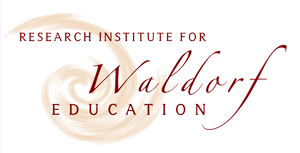Among the topics that I have found most inspiring as a history teacher has been the era of reform of the 1840’s. While the Transcendentalists were proclaiming the spirit within, reformers of various stripes were stepping forth on behalf of those who suffered from insanity, blindness, deafness, or mental infirmity. One story, in particular, captured the public imagination: the remarkable case of Laura Bridgman, a girl who at the age of one had been thrust by scarlet fever into both blindness and deafness. Could the spirit be awakened even in a child so cut off from the world, so locked in a cell of dark silence?
For many months her teacher, Dr. Howe,worked with her, hoping that something deep inside of her would begin to stir. He described how it was like dropping a line again and again down to someone submerged under water, hoping that she would grasp onto it. Then came the day when her countenance suddenly brightened, and there manifested from within her “an immortal spirit, eagerly seizing upon a new link of union with other spirits.” Over the next weeks she displayed mighty inner leaps, learning to read, to write, to communicate with others — in short, to think, although no word would ever resound within her. Laura Bridgman was truly a sensation; Charles Dickens was so impressed by her story that he sought her out on his visit to America and proclaimed her to be a marvel of the age.
Over the years I have asked classes to consider this and other stories from that often-overlooked period of reform. One such discussion remains especially vivid in my memory. That morning the conversation had turned to what we mean we when speak of disabilities. I watched as a young lady in the back row grew pensive, clearly working toward a question. Finally her hand went up and she asked, “But aren’t we all disabled –I mean, in one way or another?” For a while there was quiet, as we all considered her question. It is actually quite a profound question, and soon this young woman, who had seldom before spoken in class, was eagerly engaged in the discussion, leading us to consider ways in which we are all limited, that we all, in various aspects of our lives, fail to meet our potential.
And what is it that holds us back, that handicaps–or, we might say, disables–us? That “immortal spirit” that Laura Bridgman discovered in herself, what does it want to inspire us to do, what talents does it bring out of us? And if this doesn’t happen for some reason, isn’t that a type of disability? And does anyone fully manifest their spiritual possibilities in life?
Our conversation that day ranged in a number of directions, but it all pointed to a couple of questions. What are the ways, in our daily lives, that we help ignite those deep sparks of the human spirit in those around us? And what are the ways that we damp it down, that we discourage rather than encourage the best to come forth in our neighbor?
As teachers we are always aware of how, through a thoughtless bit of laughter or a disparaging comment, students — and we ourselves — can bring injury. But on that day I think we all realized that it is more than a matter of hurt feelings. Learning to truly see the other person is the important thing, whether in the classroom or in life. What do we need for the human spirit to flourish?
____________________________________________________________________________


